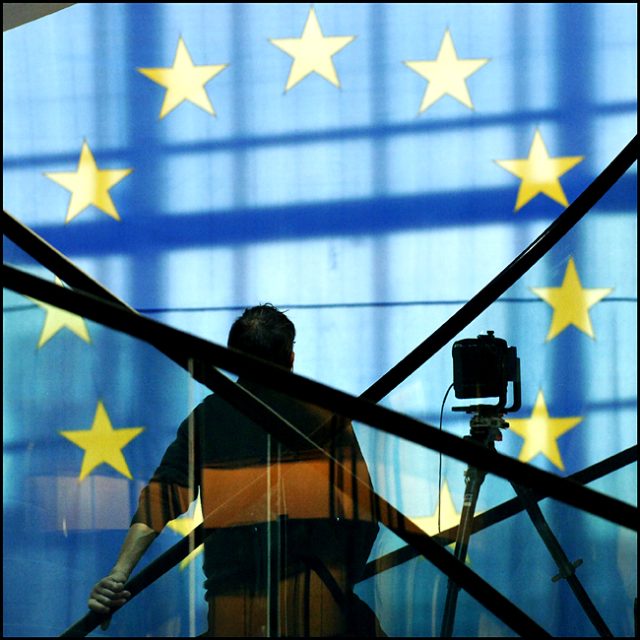
By a vote of 285 to 281, the European Parliament passed a nonbinding resolution today calling on member states to "drop any criminal charges against Edward Snowden, grant him protection, and consequently prevent extradition or rendition by third parties." The move is a "recognition of his status as whistle-blower and international human rights defender."
Speaking through his Twitter account, Snowden hailed the vote as being a "game changer."
"This is not a blow against the US Government, but an open hand extended by friends," he added. "It is a chance to move forward."
In a separate vote, members of the European Parliament voted that "too little has been done to safeguard citizens' fundamental rights following revelations of electronic mass surveillance." That resolution, passed by a vote of 342 to 274 with 29 abstentions, urges the EU Commission to ensure that all data transfers to the US have an "effective level of protection."
“It’s the first time a parliament votes to ask for this to be done—and it’s the European Parliament,” Jan Philipp Albrecht, a German Party lawmaker, told The New York Times in an interview after the vote. "So this has an impact surely on the debate in the member states."
"Our position has not changed," said Ned Price, a spokesman for the National Security Council. "Mr. Snowden is accused of leaking classified information and faces felony charges here in the United States. As such, he should be returned to the US as soon as possible, where he will be accorded full due process."
Snowden has been living in Russia, where he was granted asylum after leaking top-secret documents about surveillance. He's been charged under the 1917 Espionage Act which, as The Guardian notes, provides for criminal penalties for any disclosure of state secrets and would not allow Snowden to argue that his revelations had a public benefit.
The EU vote comes the same day that a US federal appeals court allowed the NSA bulk phone data program to continue for another six months so that it can come to "an orderly end."
reader comments
143